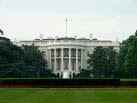Without uncertainty a human being cannot identify a problem to be solved. Michael Ruse gives the example that a caveman sees two tigers walk into a cave and only one come out. He does not know(as he cannot see) if the second tiger is still in the cave, but the operation of his brain tells him that it would be best not to go into the cave (Ruse, (2006) Darwinism and its discontents. New York, NY: Cambridge University Press).
Uncertainty can take many forms in human decision making - but it is the essential ingredient to all decisions, for without uncertainty the decision would already have been made:-
A rational decision is where the uncertainty in a subject is responded to with justification.
So, I would like to pose an interesting question. Genesis 1:27 states, inter alia, "So, God created man in His own image". This is sometimes taken to mean in a likeness sense and sometimes in respect of the mind of man - the creative nature of our species. The implication of the latter interpretation does result in the problem of uncertainty, that is, are we uncertain beings because God is an uncertain being? If so, then God cannot be omniscient as such a state renders all uncertainty void. On the other hand, if God is omniscient then we are not created in his image. Although, this may prove little more than the fallability of biblical text.
In any event, the nature of uncertainty as a central and fundamental quality of human decision making leads us to a far greater problem than God's creation and this is, Gods justice. Biblical (Koranic, Egyptian, Nordic.....) religions have penalties for a failure to be absolutely certain about the existence of the proposed God(/s). How can we make a rational decision about something if our uncertainty in the proposed statement is removed? Clearly we cannot. In order to be a theist, a person must remove their initial uncertainty through an act of faith. Otherwise, the theist must admit that they could be wrong (ie, they have the initial state of uncertainty). Thus, by removing ones uncertainty about a subject - the decision that results is a fait accompli and certainly not rational.So to any theists out there, think to yourself, could you be wrong?
















1 comment:
I believe there is a God, and I think I could be wrong all the time. Part of me can't wait to die to find out. I would point out that taking an act of faith need not absolve uncertainty.
Post a Comment